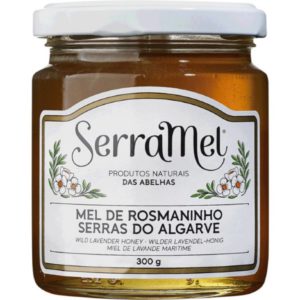Algarve’s Honey Manufacture
The production of honey is an activity that has been linked to man since ancient times and today it is estimated that the world production of honey is over 1,200,000 tons per year. Consumption has also increased during the last few years, due to the general increase in living standards and also the growing interest in natural and healthy products.
In Portugal, honey production represents an important part of the national and, mainly, regional economy, where there are recognized geographical denominations of origin, obtained in accordance with the rules of production, extraction, packaging and conservation of the product, demonstrating the interest of the producers to bet on quality. Among the 12 honey regions, producers Mouchão in Alentejo and Bagamel in Algarve, make up this list of honeys with unique characteristics and exceptional qualities of color, flavor and viscosity that do not depend on the bee itself, but on the type of flower, the geographic zones and climatic conditions were these nectars were produced.
Honey from Portugal is produced using sustainable and traditional beekeeping methods. Many honey producers in Portugal are small-scale, family-run operations that use organic and eco-friendly practices – naturally, this helps to preserve the natural environment and biodiversity of the region and ensures a high-quality product. Moreover, the harvesting of honey in Portugal happens through traditional methods, such as smoking the bees out of their hives and collecting the honeycomb, which helps to maintain the authenticity of the product.
Linked to traditions since prehistory, honey is the natural food with the greatest source of energy and can be consumed by anyone of any age, because in addition to the taste, it balances the biological process of the body, as it is the only food that contains balanced proportions of yeasts, vitamins, minerals, acids and amino acids, similar bactericidal and aromatic substances.
At present, Portugal is the country with the highest number of honeys registered in the EU (nine PDO honeys), followed by Spain (five PDO and one PGI honeys) and France (two PDO and three PGI honeys) ().


